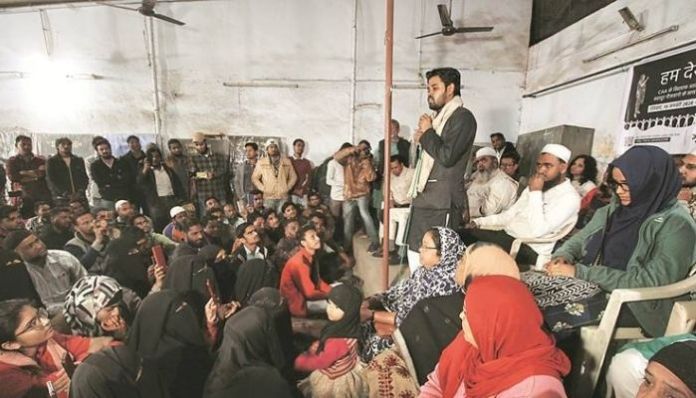Delhi riots accused Asif Iqbal Tanha who confessed to the Special Cell of the Delhi Police that he wanted to turn India into an ‘Islamic’ country has been denied bail by a Delhi court on Wednesday.
Student of Jamia Millia Islamia and member of the Student Islamist Organization (SIO) since 2014, Asif was arrested under the Unlawful Activities (Prevention) Act in May for purportedly being a part of a larger conspiracy behind the February riots in northeast Delhi.
While hearing Asif’s case, Additional Sessions Judge Amitabh Rawat noted that the witness testimonies reflected his role in engineering the conspiracy and orchestrating a ‘chakka-jam’ that culminated into the riots. As per reports, protected witnesses have stated that Asif was one of the primary coordinators of the conspiracy.
Accusations against Asif Iqbal Tanha prima-facie true, observes Delhi court
While observing that witnesses testimonies were not detailed in nature, the learned Judge observed, “Their merits or credibility can’t be gone into at the present stage. Considering the statement of such witnesses regarding the role of the accused Asif Iqbal Tanha and other accused persons whose conduct is also highlighted by various statements, I have no hesitation to hold that there is reasonable ground for believing that accusation against the accused are prima facie true…”
Judge Amitabh Rawat stated that while freedom of speech and expression is guaranteed under the Indian Constitution, it is subjected to ‘reasonable restrictions.’ In its order on Wednesday, the Court observed, “Thus, what has to be seen is the context, manner of expressing the dissent and various acts associated with it. It has to be some acts in pursuance of a conspiracy by various means.”
The Court stated that actions which threaten the unity of India, cause death, injuries, loss of properties, and strike terror in the hearts of people fall under Section 15 (acts of terror) and Section 18 (recruitment for terror activities) of the Unlawful Activities (Prevention) Act, 1967. “Thus, the provision of Unlawful Activities (Prevention) Act, 1967, has been rightly invoked in the present case,” the Court ruled.
The Court further observed that since the role of Asif Iqbal Tanha was related to conspiracy, therefore, the evidence had to be examined in entirety. “The statements and evidence will have to be read in entirety since it is a case of conspiracy. Moreover, the assertion that the accused himself physically and directly did not resort to violence as understood in common parlance would not be germane in the context of various acts committed by different individuals including accused in the conspiracy of riots.”
Asif Iqbal admitted to orchestrating riots and a march of 2500-3000 people from the Gate no.7 of Jamia Millia Islamia on December 12. He revealed that Sharjeel Imam gave a provocative speech to encourage ‘protestors’ to execute a ‘chakka jam’ on December 13.
Asif confessed to organising a ‘Gandhi peace march’ on December 15 from the Jamia metro station to the Parliament via Zakir Nagar and Batla House. He stated that the purpose of naming it after Mahatma Gandhi was to lure more people into joining the march. Reportedly, the Delhi police had set up barricades near the Surya Hotel to prevent the ‘protestors’ from surging forward. Asif Iqbal confessed to provoking people to break through the police barricades under the impression that the cops lacked the ‘guts’ to stop them.
However, his plans did not succeed as the police soon resorted to lathi-charge to disperse the unruly mob. The Jamia students then resorted to stone pelting, setting buses on fire, and creating mayhem on the streets of Delhi. As such, both the policemen and the ‘protestors’ were injured during the course of the march.
Asif Iqbal further admitted that he delivered provocative speeches at several places in the country including Kolkata, Kota, Lucknow, Kanpur, Ujjain, Indore, Jaipur, Patna, Sabzibagh, Araria, Samastipur, Ahmedabad. Reportedly, he urged common Muslims to protest against the Indian and not to shy away from engaging in violence, if such a need arose.
Asif added that JNU activist Umar Khalid had suggested the idea of blocking roads and disrupting traffic during the visit of US President Donald Trump to India. The plan of action was then executed by the likes of Meeran Haider and Safoora Zargar which later culminated into violent riots. Besides his desire to turn India into an Islamic country, he considered the Citizenship Amendment Act (CAA) as anti-Muslim and therefore joined the students of Jamia Milia Islamia in opposing it.

